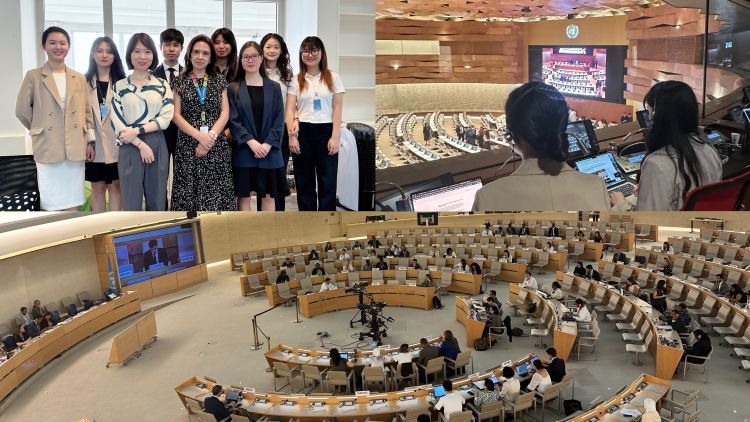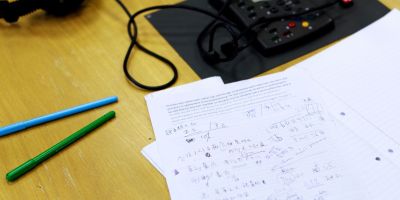Leeds Conference Interpreting Cohort Visits the United Nations Office at Geneva (UNOG) for Simulated Interpreting Practice

MACITS students visit the United Nations Office at Geneva for dummy booth interpreting experience.
In June 2025, students from the 2024–2025 Chinese cohort of the MA Conference Interpreting and Translation Studies programme (MACITS) at the University of Leeds successfully completed their dummy booth interpreting practice session at the United Nations Office at Geneva (UNOG).
This year’s visit was led by Ms Lihong Pan, who coordinated with the UNOG staff to facilitate an enriching programme that combined professional exposure with practical training.
During the visit, students participated in dummy-booth interpreting at high-level multilateral meetings, including those of the 56th session of the United Nations Human Rights Council (HRC), and the UNCTAD (UN Trade and Development) 16 Preparatory Committee.
This unique opportunity gave them first-hand exposure to the complexities and demands of live institutional interpreting in an international setting.
In addition to their interpreting practice, the group engaged in some valuable exchange sessions with the UN staff.
They had the privilege of meeting Ms Monica Varela García, the Chief of the Interpretation Service at UNOG, who shared her experience leading a multilingual team and emphasized the cognitive complexity inherent in simultaneous interpreting, particularly the mental agility required to interpret high-speed discourse across multiple languages.
Some other highlights of the visit were the guidance, help and coaching given directly by colleagues, including senior colleagues of the Chinese Booth, among whom was senior interpreter Ms Xunyu Huang. She joined the student in the booths to listened to their live interpreting and gave tailored feedback on their output and delivery.
In addition, the students attended a coaching session by Ms Alice Ryckmans, a senior interpreter from the French booth. Ms Ryckmans shared techniques for coping with interpreting stress, improving text analysis, and refining listening strategies—insights that bridged the gap between training and real-world performance.
The students also met with some senior colleagues from the Chinese Section of UNOG’s Translation Service, where they discussed workflows, technologies in use, and pathways for career development, and gained insights on multilingual policy and institutional communication.
The visit, whose organization involved extensive contribution from Dr John Li, our visiting lecturer and former senior interpreter at UNOG, once again provided an invaluable opportunity to connect classroom training with the professional realities of conference interpreting at the highest international level and helped the students gain thoughts on the direction and ways for future development.
The student team leader Hongyi Li reflected:
“Working on genuine UN material and receiving critiques from seasoned interpreters was eye-opening. The atmosphere of the Human Rights Council made everything feel real and deeply motivating.”
Another student Yichong Nie noted:
“This visit gave me direction and purpose—it showed me exactly what professional excellence looks like in our field.”
Their comments underscore the practical and motivational impact of the visit. Therefore, we would like to extend our sincere thanks to the UNOG staff whose expertise made this experience possible, including but not limited to:
Interpreting Service:
- Ms Monica Varela García
- Ms Xiaolan Feng
- Mr Zhiguo Yang
- Ms Qiong Xie
- Ms Ziwei Tan
- Ms Xunyu Huang
- Ms Alice Ryckmans
- Mr Benjamin Nominet
Translation Service:
- Ms Dan Lin and her colleagues
Their guidance, feedback, and generous support profoundly enriched the students’ learning journey. This experience not only validated their academic preparation but also ignited their ambition to pursue excellence in professional interpreting at the global level.




